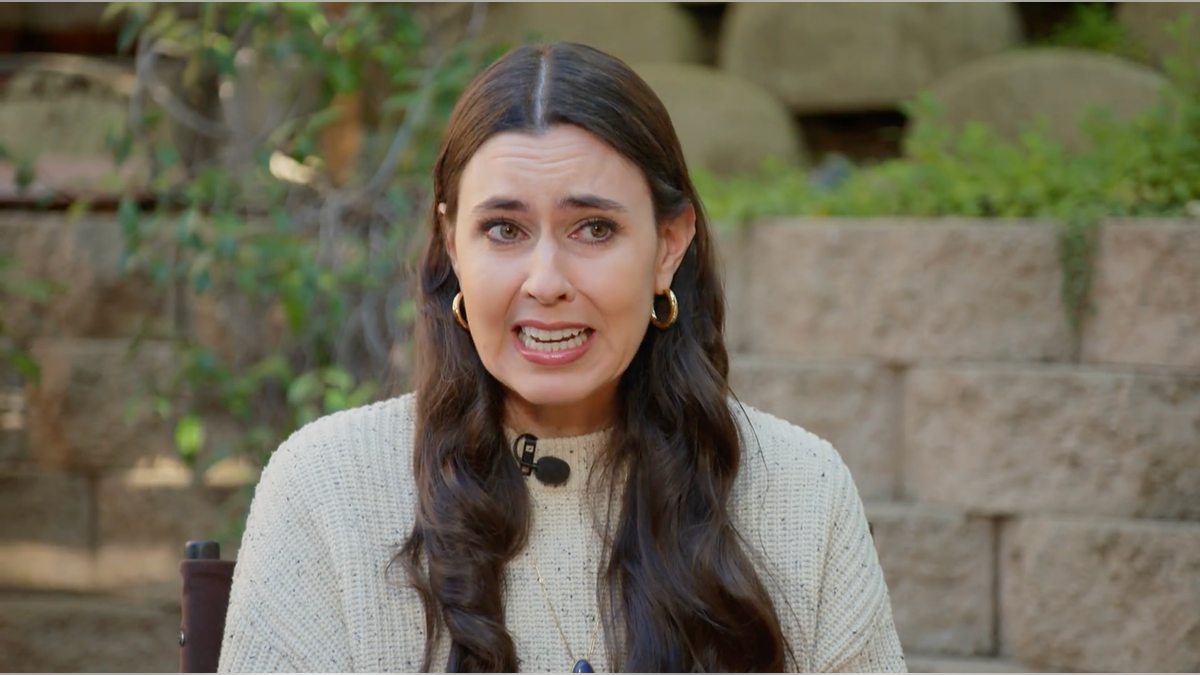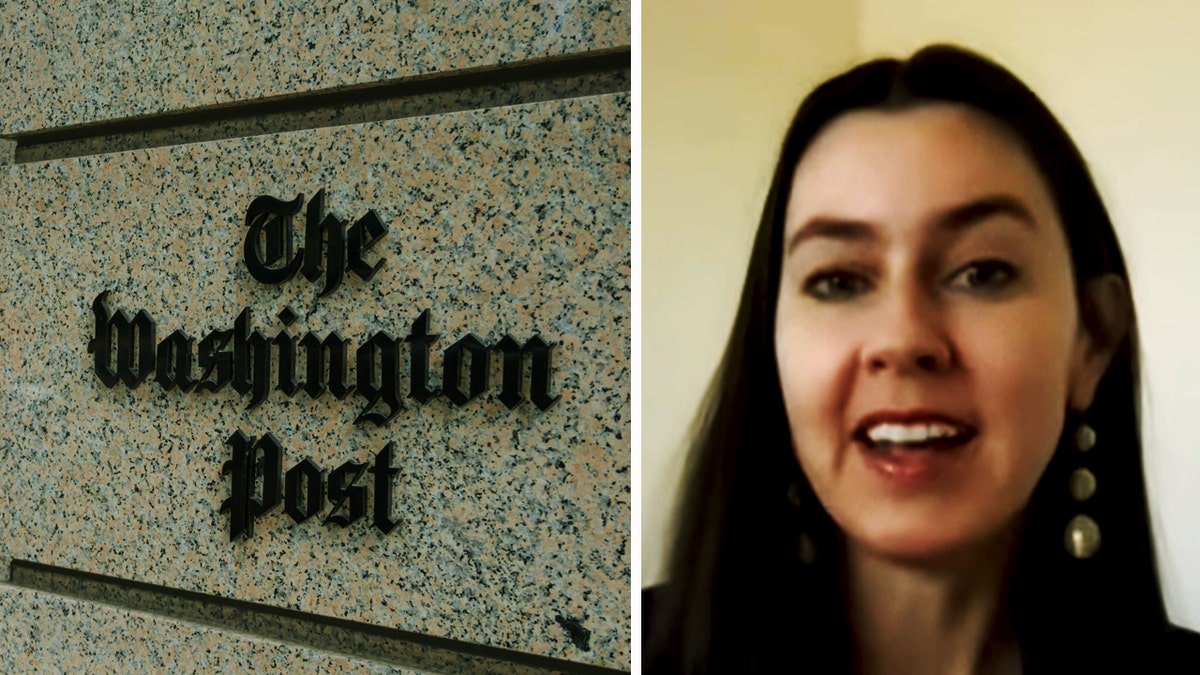Johnny Depp verdict: Legal experts weight in on Washington Post’s involvement
Washington Post published Amber Heard’s now-infamous op-ed at center of trial.
Former New York Times columnist Ben Smith confronted controversial Washington Post reporter Taylor Lorenz on Thursday about why she uses the term "bad faith" so often when referring to her critics.
Lorenz, who used to be Smith’s colleague at the Times before she joined the Post, joined him for a pre-launch event for his new media venture Semafor. While on stage, Smith asked a masked Lorenz why she assumes anyone who criticizes her is acting in "bad faith."
Lorenz, known for lashing out at critics, had used the term 16 times on Twitter alone since February.
"How do you know who's in bad faith? Like, what’s my faith? You’re sort of looking into people’s hearts and saying, ‘This person who disagrees with me, they’re not mad at me because I got something wrong, they’re not mad at me because they think I’m too liberal, they’re fundamentally in bad faith,'" Smith said. "How do you say that?"

Washington Post journalist Taylor Lorenz speaks with Ben Smith at Semafor's "Signal and Noise: Polarization and Trust in News" event. (Semafor)
Lorenz initially responded, "You can tell the difference between someone who disagrees with you and someone who is not operating in good faith," when Smith simply asked, "How?"
"Based on the nature of their question, right? For instance, if they’re coming to you in an honest capacity, and saying, ‘Hey, I noticed X-Y-Z,’ you’re like, ‘Oh, OK, I’ll take your feedback,'" Lorenz said. "On every story I write, I hear lots of different perspectives… but if somebody is coming at you and is making personal attacks, they’re misrepresenting you, they’re kind of actively participating in networked harassment… retweeting people who are not there for constructive criticism. I think you can tell the difference between constructive criticism and not constructive criticism."
Smith then suggested some of Lorenz’s critics could simply be angry or obnoxious but not acting in "bad faith" and accused her of "guessing" people’s intentions.
"How could you know? Smith asked.
Lorenz said it’s "quite obvious" but admitted it’s "somewhat of a guess," before Smith confronted her about using the phrase during a public debacle that occurred last month when she penned a column about the online content creators who benefited from the explosive Johnny Depp-Amber Heard civil trial.
In her original report, Lorenz cited two YouTubers who allegedly profited from their coverage of the trial and the report stated they did not respond to requests for comment. The YouTubers blasted Lorenz, saying that she had never reached out to them before the story was published.

Washington Post columnist Taylor Lorenz broke down during an interview with MSNBC in April about online harassment. (MSNBC)
Following the outcry from the pair of internet influencers, the erroneous statement was initially scrubbed from Lorenz's report without any acknowledgment. After being called out for the stealth-editing that transpired, the Washington Post issued two corrections, the first admitting its characterization of Lorenz's communications with the YouTubers was inaccurate and the second acknowledging it wrongly removed the false statement without an editor's note.
Eventually, Lorenz attempted to set the record straight, citing "miscommunication" and blaming her editor all while suggesting any scrutiny of her reporting is a "bad faith campaign" against her and the Washington Post.
QUESTIONS REMAIN AS TAYLOR LORENZ BLAMES EDITOR, ‘BAD FAITH CAMPAIGN’ OVER ERRONEOUS WAPO REPORT
Smith said, "There was an error in a Washington Post story," and noted the person who the error was about was furious.
Lorenz attempted to attack the YouTuber, saying the person has been caught up in previous scandals.
"Right, but you made an error about them, of course they’re mad," Smith said.
"Well, there was an error in the story," Lorenz quickly responded, appearing to once again blame the editor of the story, who was since identified as deputy features editor David Malitz.

Ben Smith confronted Taylor Lorenz on Thursday about regularly assuming her critics act in bad faith. (Drew Angerer/Getty Images)
Smith then asked Lorenz why she didn’t just say, "I’m sorry we screwed up."
Lorenz claimed she did exactly that via email, but Smith pointed out that wasn’t what occurred in public.
Lorenz claimed she was apologetic until it became "very clear that it was such bad faith," and attempted to say the story was only a big deal in media circles because it played out on Twitter.
"I’ll let this go in a second… but how do you know if in his heart, he’s mad or not? Bad faith or good faith?" Smith asked.

Washington Post reporter Taylor Lorenz is regularly criticized online. (Eric Baradat/AFP via Getty Images | CNBC Television/YouTube/Screenshot)
"He said he wants to go to war with the media and destroy the Washington Post," Lorenz responded as Smith joked that half the people in attendance probably feel the same way.
"Honestly, that’s true," Lorenz responded in jest before pivoting back to defending herself.
"I guess it goes back to judgment, we as journalists use judgment every single day in sort of how we interact with people, all I can do is respond to people in good faith… especially in the case if we have an error," she said. "if you come back with that, sort of crazy campaign that continues for days, I’m going to assume, you know what, you’re not there."
CLICK HERE TO GET THE FOX NEWS APP
Smith then said he mostly sees the term "bad faith" used to describe right-wingers.
"The critics of mainstream media, your critics, are certainly to the right," Smith said. "Do you think ‘bad faith" is primarily a right-wing phenomenon?"
Lorenz said that "anyone can be bad faith" but "obviously a lot of more extreme figures on the right" fall into that category before agreeing with Smith’s larger point.
"I agree with you that ‘bad faith’ is not the best term but I haven’t come up with a better one for it," Lorenz said.
Fox News’ Joseph A. Wulfsohn contributed to this report.










































